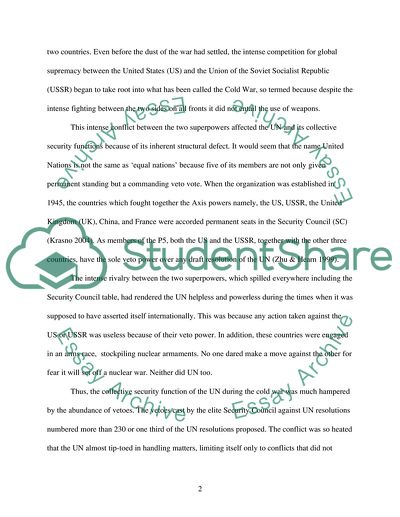Cite this document
(“The Role of the United Nations in a Collective Security Essay”, n.d.)
The Role of the United Nations in a Collective Security Essay. Retrieved from https://studentshare.org/social-science/1544903-critically-examine-the-role-of-the-united-nations-in-collective-security
The Role of the United Nations in a Collective Security Essay. Retrieved from https://studentshare.org/social-science/1544903-critically-examine-the-role-of-the-united-nations-in-collective-security
(The Role of the United Nations in a Collective Security Essay)
The Role of the United Nations in a Collective Security Essay. https://studentshare.org/social-science/1544903-critically-examine-the-role-of-the-united-nations-in-collective-security.
The Role of the United Nations in a Collective Security Essay. https://studentshare.org/social-science/1544903-critically-examine-the-role-of-the-united-nations-in-collective-security.
“The Role of the United Nations in a Collective Security Essay”, n.d. https://studentshare.org/social-science/1544903-critically-examine-the-role-of-the-united-nations-in-collective-security.


